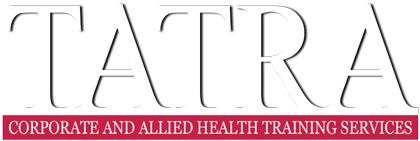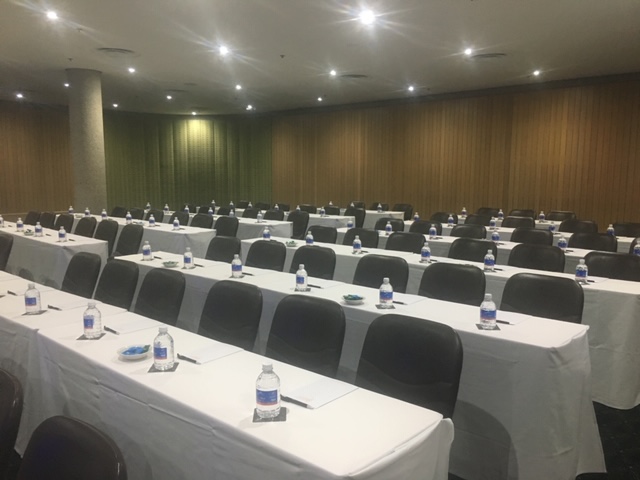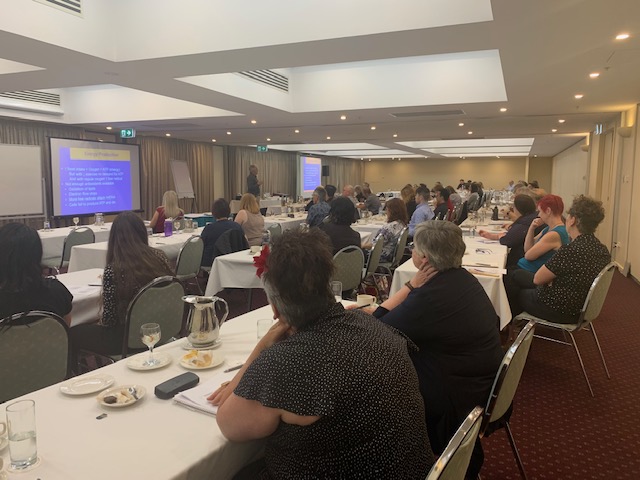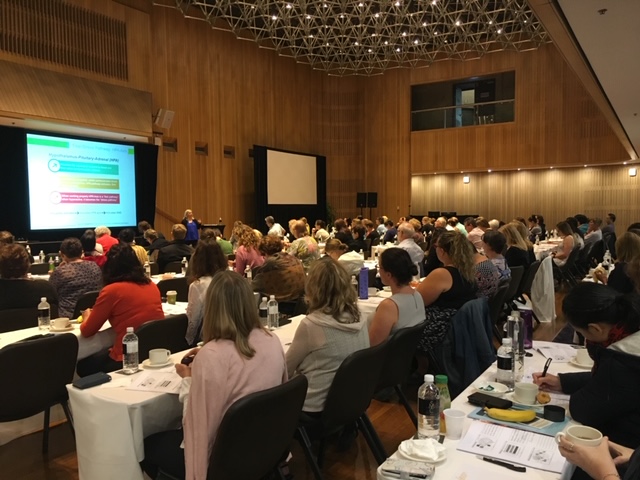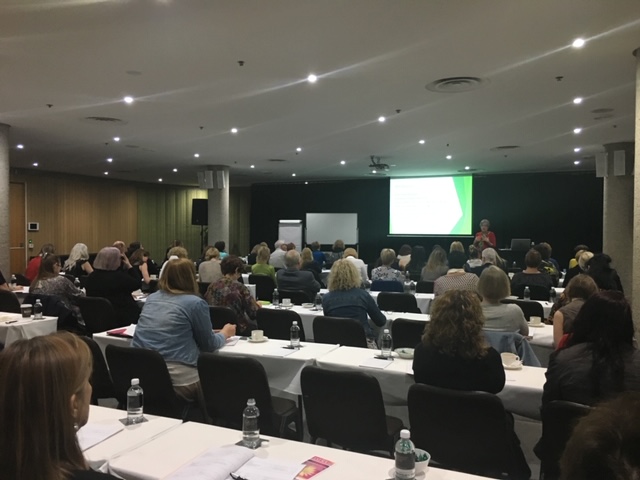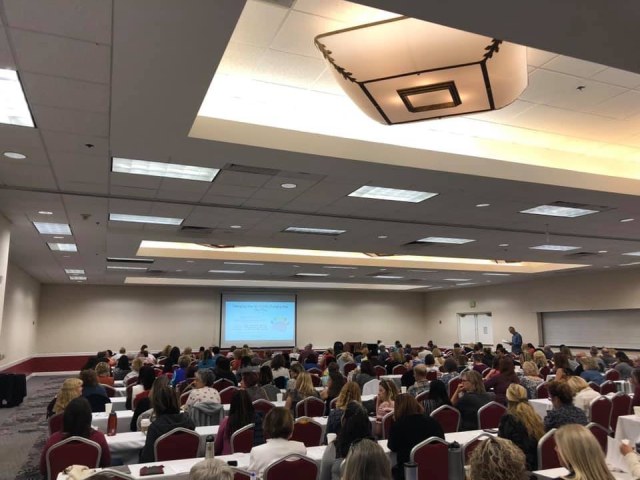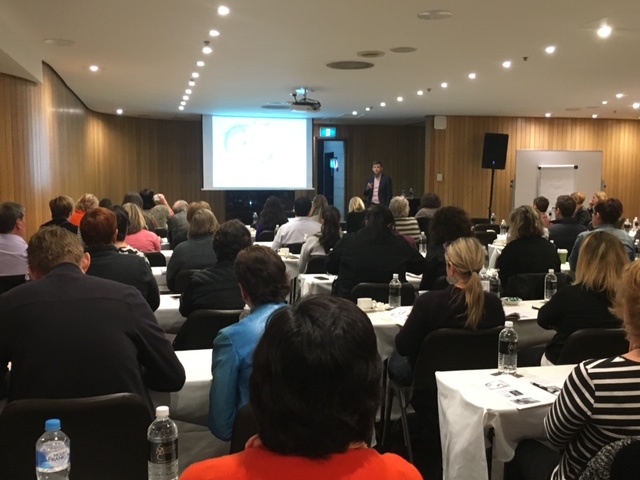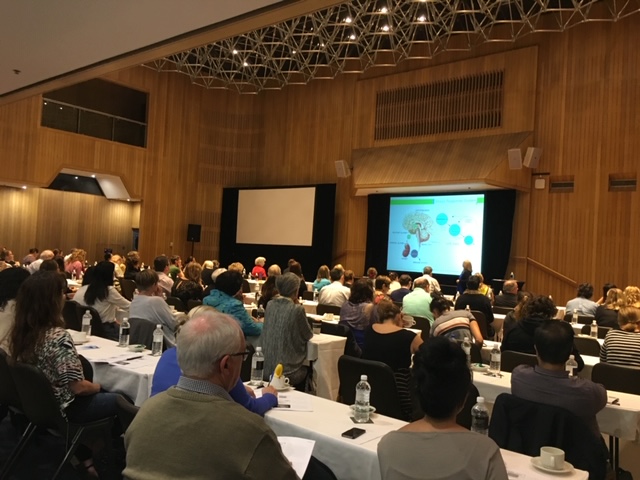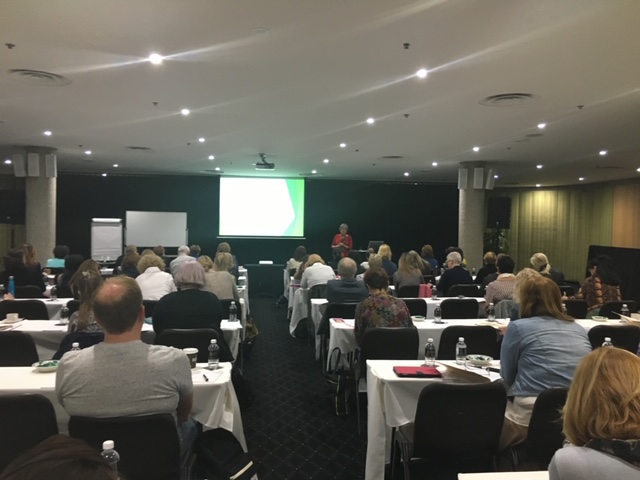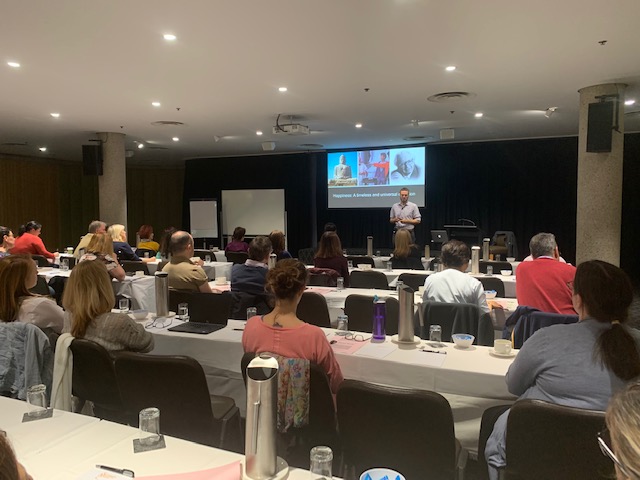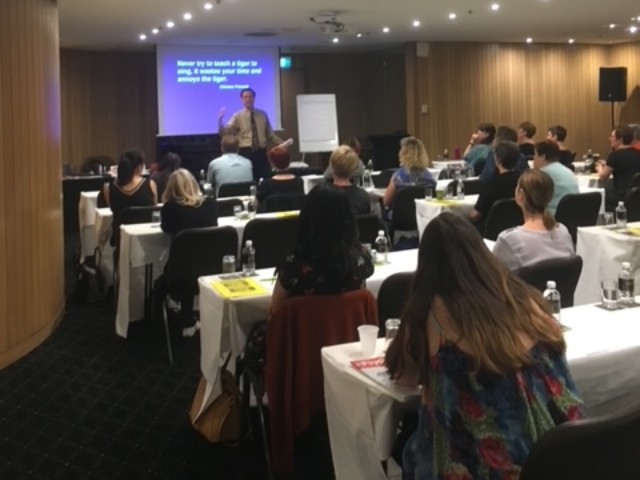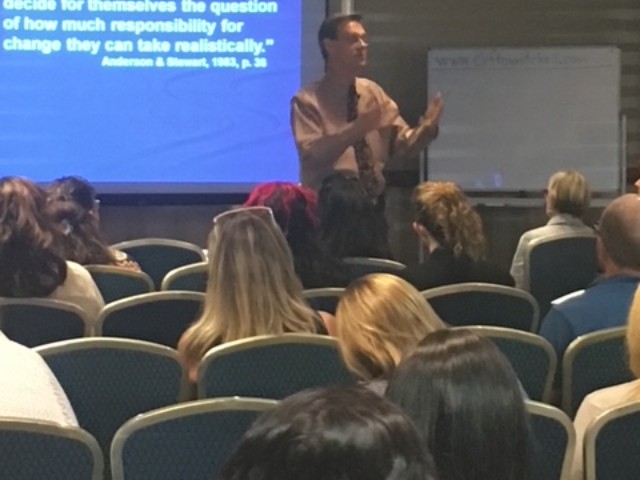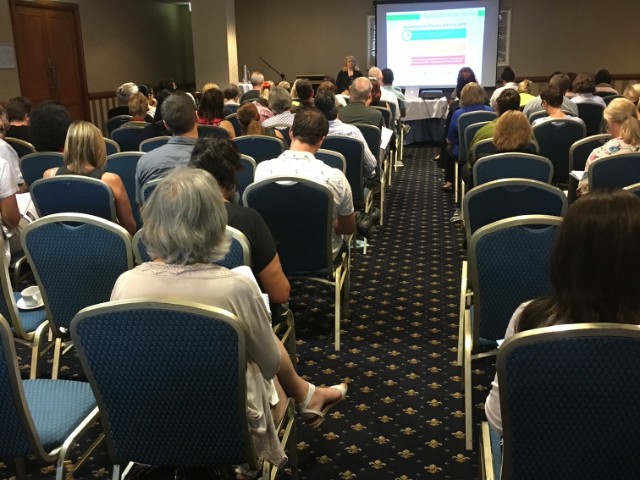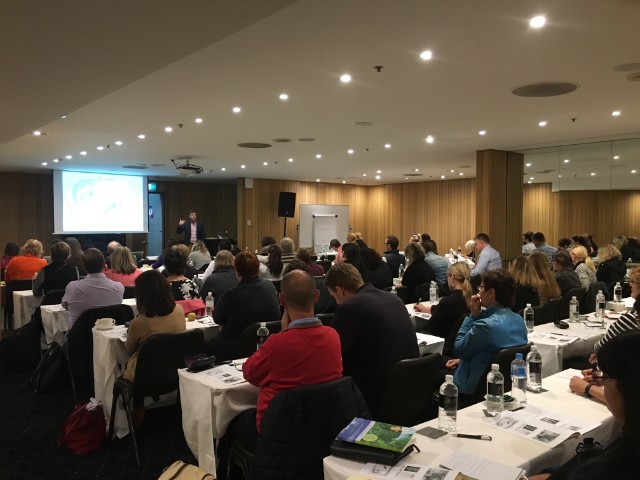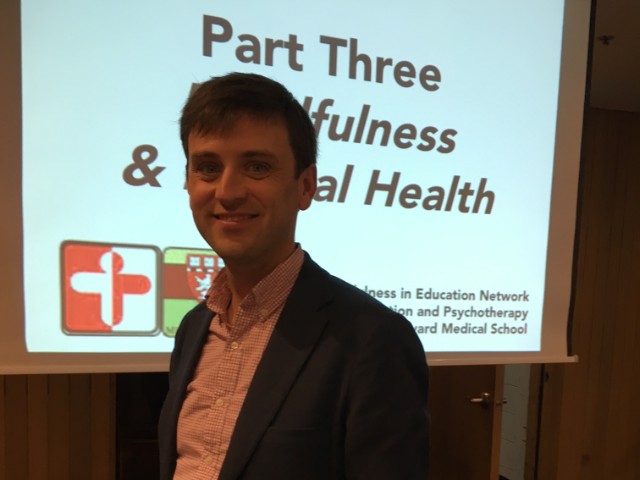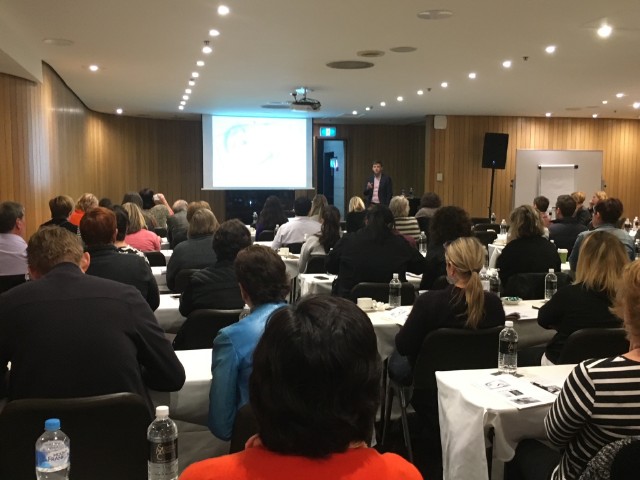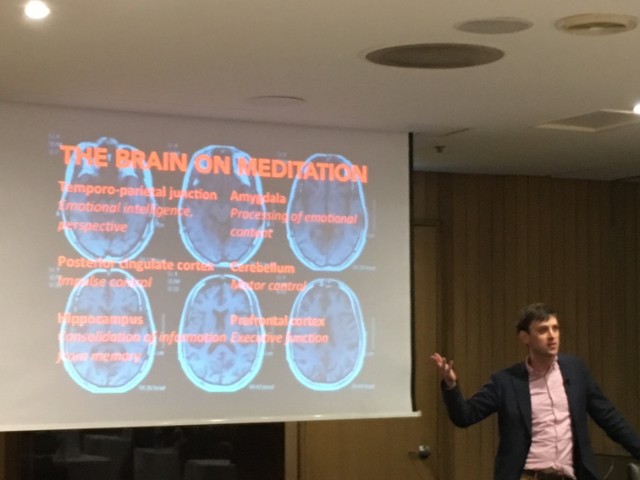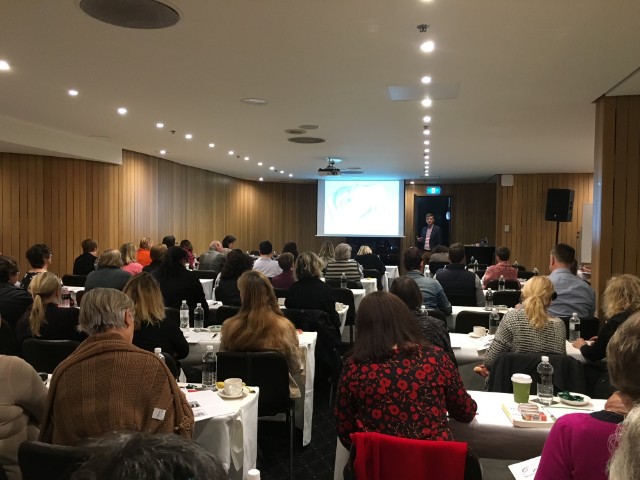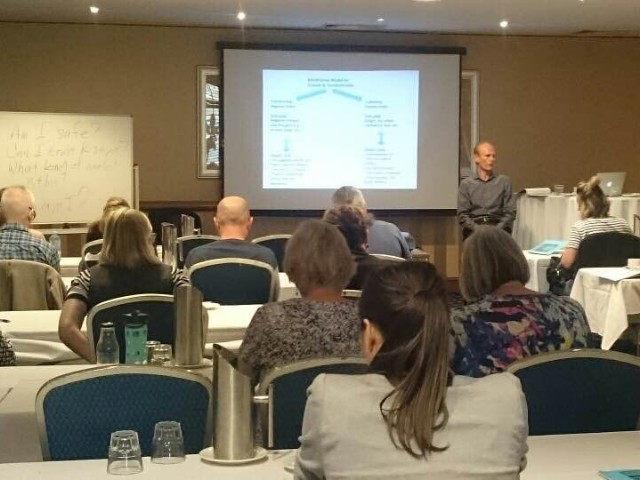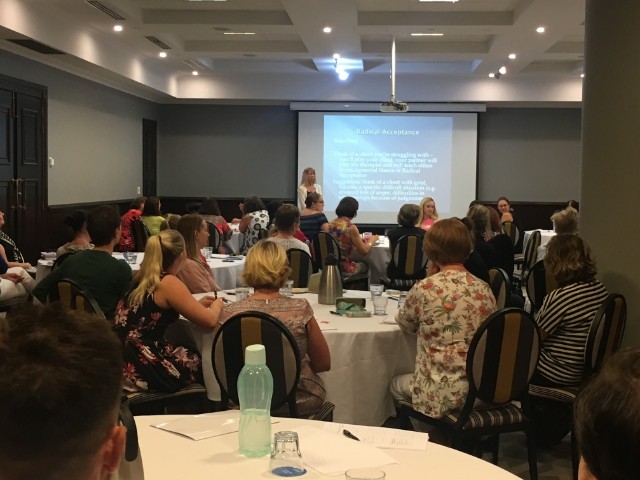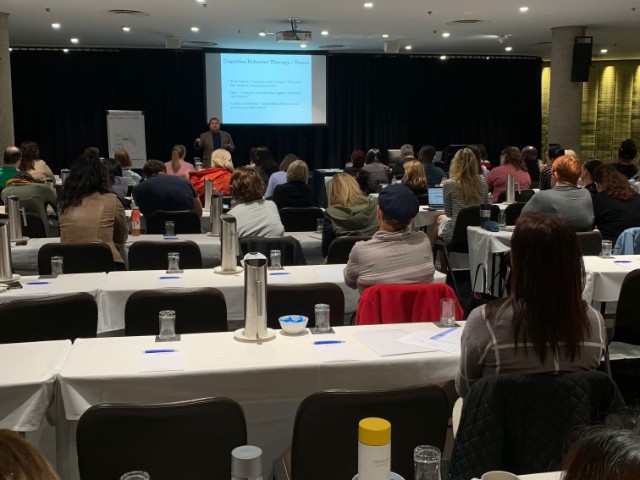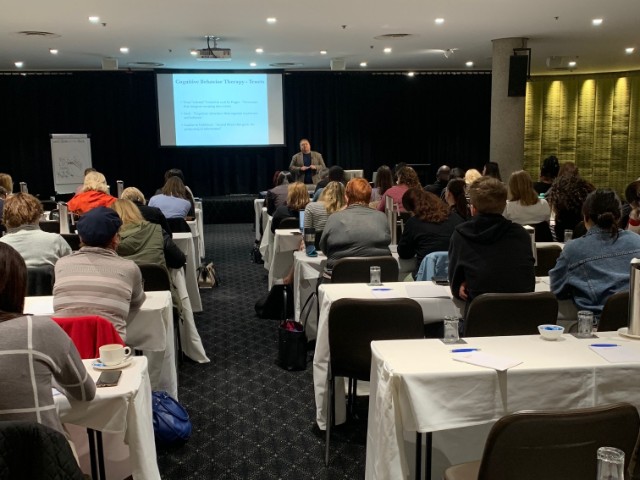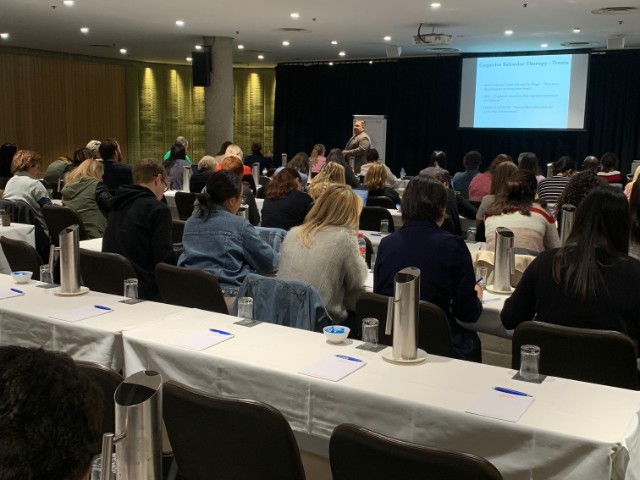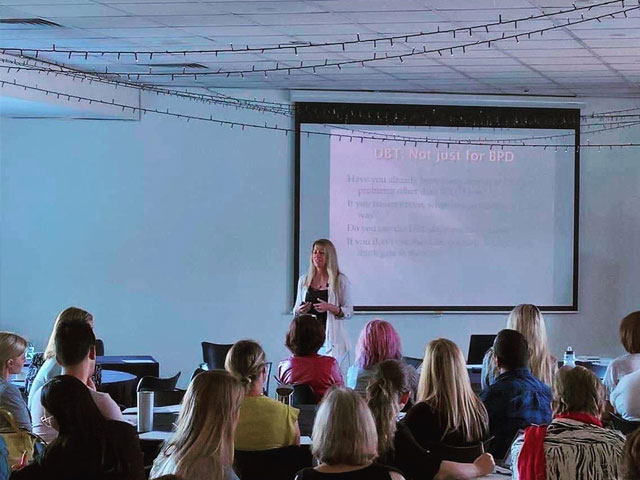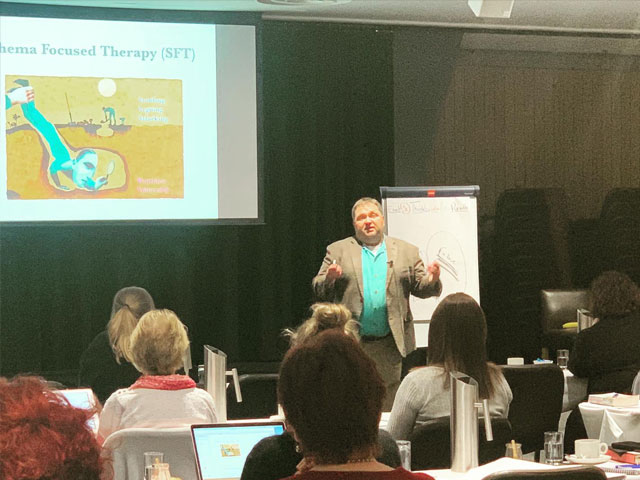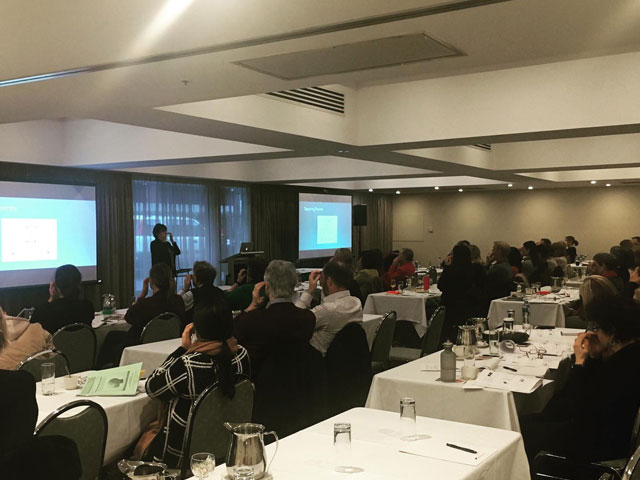Since 2001 TATRA Corporate and Allied Health Training Services has provided hundreds of training events around Australia, including capital cities and regional centres.
Past Workshops
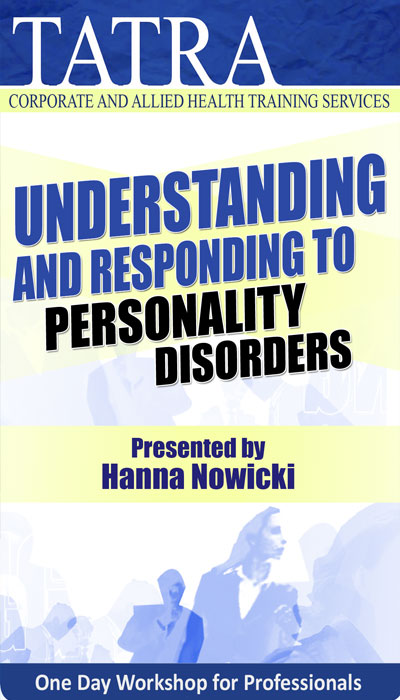
Understanding and Responding to Personality Disorders
One of our most popular workshops, Understanding and Responding to Personality Disorders has been held in major capital cities and regional areas around Australia dozens of occassions since 2001.
Hanna Nowicki (Postgrad. Soc. Work, LLB, BA Psych)
TATRA Corporate and Allied Health Training Services has developed a workshop which will foster an understanding of the specific challenges associated with caring for individuals with personality disorders. This is an interactive and fun workshop. Case studies, group tasks and movie illustrations will be used to make this not only a valuable learning experience but also an enjoyable one.
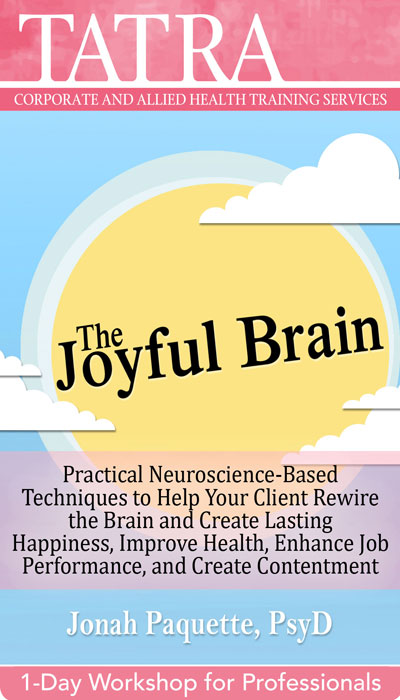
The Joyful Brain – Practical Neuroscience-Based Techniques to Help Your Client Rewire the Brain and Create Lasting Happiness, Improve Health, Enhance Job Performance, and Create Contentment
October 2019
Jonah Paquette, Psy.D.
This workshop will provide you with science-based exercises and strategies you will be able to immediately introduce to your clients the very next day. You will learn a range of techniques that will allow your clients to change their daily habits, lift their moods and fight anxiety or depression, regulate emotions and improve general health and well-being.
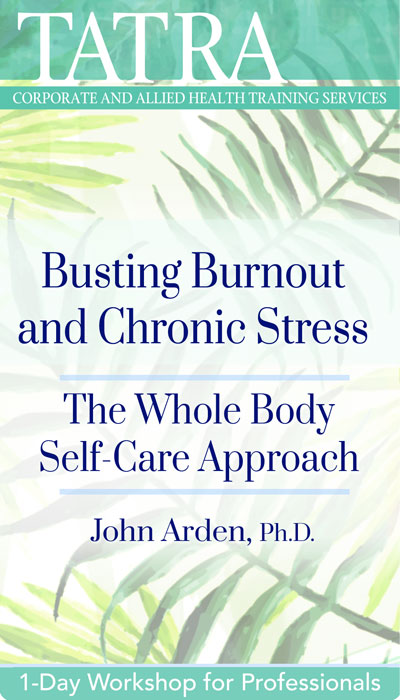
Busting Burnout and Chronic Stress: The Whole Body Self-Care Approach
March 2020
John Arden, Ph.D.
This seminar will examine the use of Brain-Based Therapy to enhance outcomes with people who suffer from Chronic Stress, Burnout and Compassion Fatigue. Dr Arden will show you how self-care behaviours have major effects on the immune system, the brain, and the body in general, and how these interactions have a profound effect on mental health.
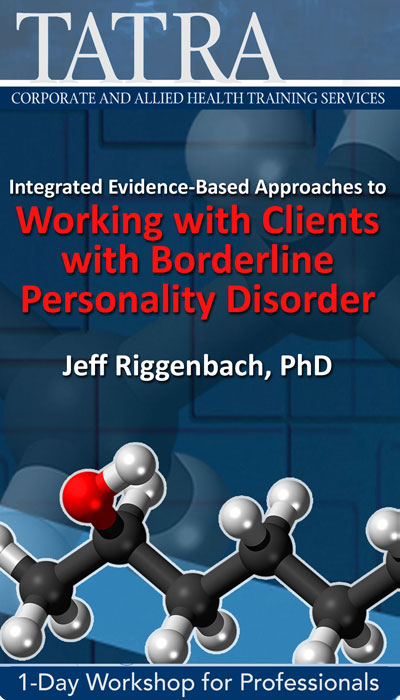
Integrated Evidence-Based Approaches to Working with Clients with Borderline Personality Disorder
May 2019
Jeff Riggenbach, PhD
Leave this enjoyable and information packed seminar with a new ability to help struggling individuals deal with issues related to self-harm, multiple suicide attempts, frequently hurt feelings, intense and unpredictable mood swings, shame, trauma, toxic relationships and other problems that impair their ability to function in society.
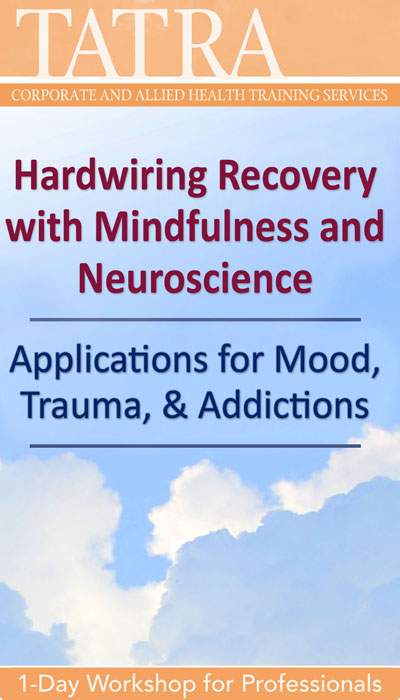
Hardwiring Recovery with Mindfulness and Neuroscience: Applications for Mood, Trauma, & Addictions
June 2019
Debra Alvis, PhD
Join Dr Debra Alvis for a day of cutting-edge, contemplative and brain-based interventions to address a spectrum of clinical disorders. With the seminar’s focus on clinician self-care, conclude the day feeling renewed, energized, and ready to apply these new approaches.

Suicide Risk Assessment
This workshop has been held at various locations around Australia since 2001, and also held as an in-house event for many organisations.
Hanna Nowicki, (Postgrad. Soc. Work, LLB, BA Psych)
Mastering the skill of Suicide Risk Assessment (SRA) is one of the ways of preventing suicide and allowing intervention at an early stage, before the continuum between the first suicidal thought and the decision to complete suicide has been finalised. The workshop is intended for all frontline workers who come into contact with people who may be suicidal, including those who are experienced in this area.
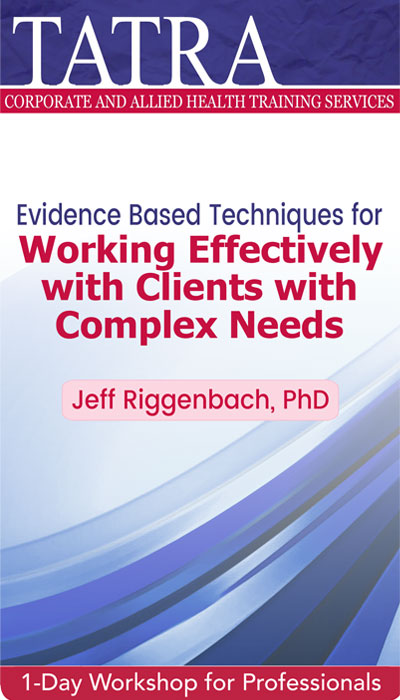
Evidence Based Techniques for Working Effectively with the Five Most Challenging Client Groups
May 2019
Jeff Riggenbach, PhD
Attend this seminar and learn how you can develop and further modify CBT, DBT and Schema Therapy techniques you currently use to achieve faster results with five groups of clients.
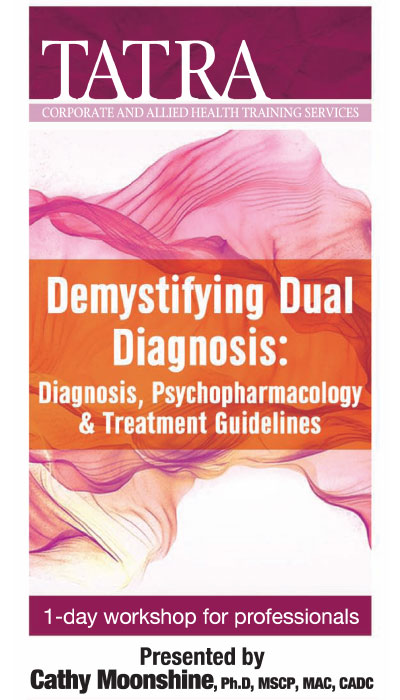
Demystifying Dual Diagnosis – Diagnosis, Psychopharmacology & Treatment Guidelines
November 2013
Cathy Moonshine, PhD
Dual diagnoses are the expectation, not the exception. It is essential that treatment staff and clinicians are able to competently work with individuals who present with both mental health issues and substance use disorders. It is estimated that as many as 80% of clients who request help for either substance use problems or mental health difficulties also have the other problem.
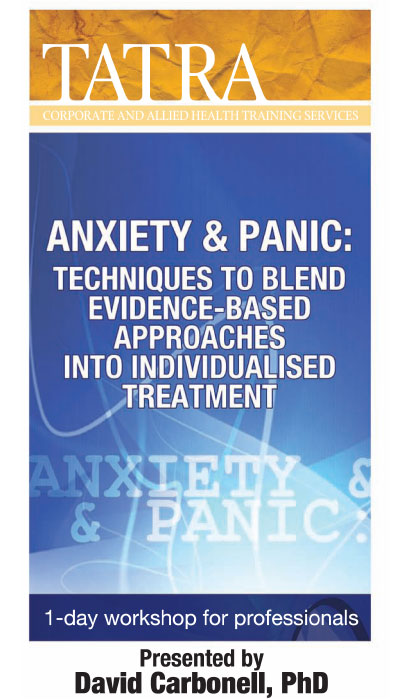
Anxiety and Panic: Techniques to Blend Evidence-Based Approaches into Individualised Treatment
March 2013
David Carbonell, PhD
This workshop will show you how to empower clients who suffers from anxiety disorders to see themselves as resilient, capable people who have been fooled by anxiety, rather than defective people who need to be protected.
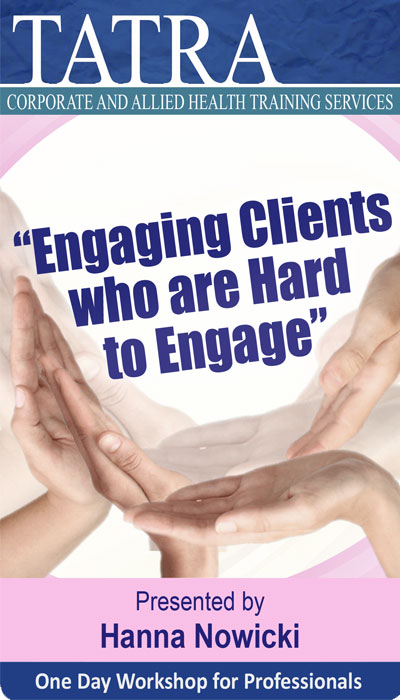
Engaging Clients who are Hard to Engage
This workshop has been held as an in-house event for organisations and an open registration event many times in capital cities and regional centres throughout Australia.
Hanna Nowicki, (Postgrad. Soc. Work, LLB, BA Psych)
The training is applicable to a wide variety of settings across the system. Practitioners such as psychologists, social workers, counsellors, nurses, case managers, parole officers, support workers, employment officers, and other such professionals who have attended his training in the past, have found it extremely helpful in their work towards resolving resistance and creating client co-operation. By focusing on improved responses in the dialogue between the worker and the client, they reported higher confidence in achieving better client outcomes fast.
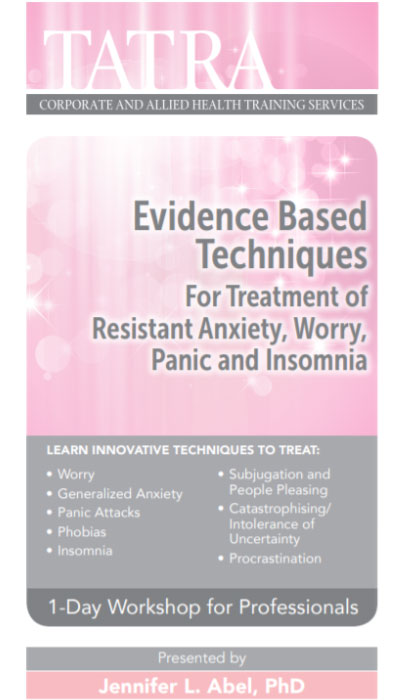
Evidence Based Techniques for Treatment of Resistant Anxiety, Worry, Panic and Insomnia
October 2015
Jennifer Abel, PhD
In this seminar you will learn how to avoid five common pitfalls of ineffective anxiety treatment and be able to apply effective strategies to help clients overcome excessive worry, panic attacks and insomnia. You will learn specific programs for: perfectionism, subjugation, catastrophizing, intolerance of uncertainty, procrastination, and attentional difficulties.

Bipolar Spectrum: Bringing Evidence to Practice. The Best Integrated Assessment & Treatment Tools
August 2012
Leslie Lundt, M.D
No longer are medications the sole ingredient of treatment for Bipolar Disorder. Learn about three bipolar-specific psychotherapies which have been shown to improve clients’ outcomes more than medications alone—and how to integrate them with your current psychotherapy approaches. Dr. Lundt will help you practice the use of these techniques and tools in a lively day of laughter and learning.
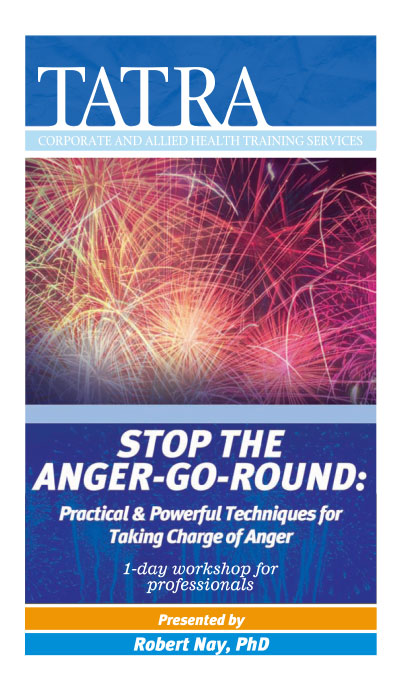
Stop the Anger-Go-Round: Practical & Powerful Techniques for Taking Charge of Anger
September 2012
Robert Nay, PhD
This highly focused program has been designed to add the latest cognitive-behavioral and short-term anger intervention strategies to your repertoires. You will learn to apply a powerful range of innovative anger management techniques in your work with adults, youth, couples and families. You will learn the very latest skills and techniques that will diffuse anger and provide lasting change in your clients.
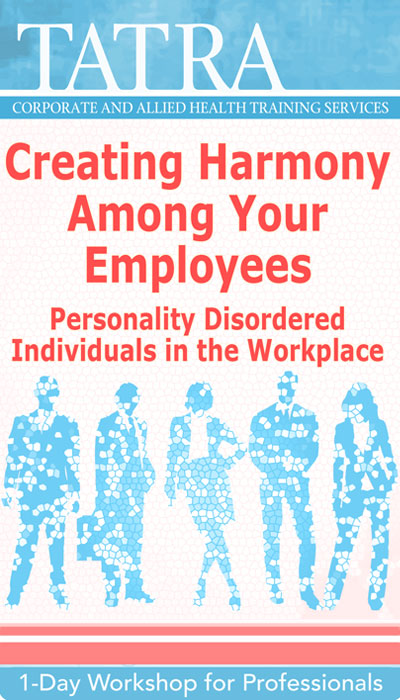
Creating Harmony Among Your Employees – Personality Disordered Individuals in the Workplace
Various dates and locations
Hanna Nowicki, Postgrad. Soc. Work, LLB, BA Psych
This seminar is the third in the series of presentations on personality disorders and difficult behaviours. The aim is to help employees deal with dysfunctional people on the job. The emphasis is on difficult behaviours within the workplace displayed by highly functioning individuals with traits that are characteristic of personality disorders.

Working with Clients with Borderline Personality Disorder: How to Effectively Respond to Your Most Complex Clients
March 2015
Jerold J. Kreisman, M.D
Attend this workshop and learn Dr. Kreisman’s effective techniques to respond to behaviours related to splitting, fear of abandonment, impulsiveness, insecure sense of identity, and other prominent features of BPD. Explore the latest developments in research. Emphasis will be placed on discussing examples of frequent borderline conflicting behaviours and responses to life challenges.

The Burnout Solution: Professional Endurance and Emotional Intelligence
June 2014
Daniel J. Fox, PhD
Every mental health clinician experiences signs and symptoms of burnout at least once in their career. However, most do nothing about it until their career hangs in the balance. It is not just you or your therapeutic system standing alone. It is stress and burnout that causes this distance. Gaining better understanding and learning the tools necessary to lessen burnout is critical to achieving a long and satisfying career.
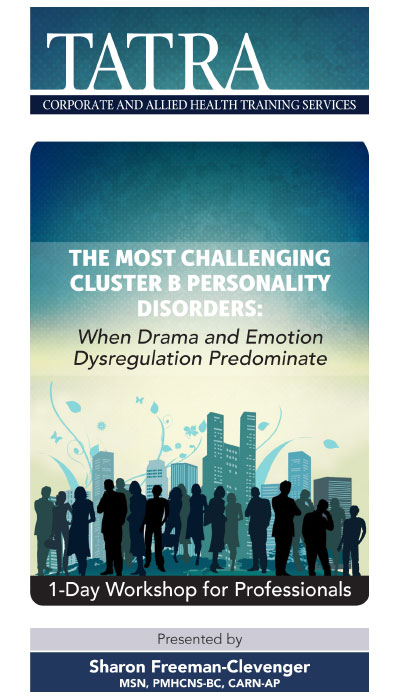
The Most Challenging Cluster B Personality Disorders: When Drama and Emotion Dysregulation Predominate
September 2016
Sharon Freeman-Clevenger, MSN, PMHCNS-BC, CARN-AP
Join expert and author, Sharon Freeman Clevenger, as she delivers an intensive workshop designed to provide you with the most recent scientific information, knowledge, skills, and abilities to accurately identify these difficult personality disordered clients. Cluster B Personality Disorders include those disorders of impulsivity and emotion dysregulation that the DSM-5 calls the dramatic, emotional, and erratic cluster. Cluster B includes Borderline, Narcissistic, Histrionic, and Antisocial Personality Disorder.

Complex and Resistant Depression: The Best Evidence-Based Techniques for Assessment and Enhancing Treatment Outcomes
September 2014
Sharon Freeman-Clevenger, MSN, PMHCNS-BC, CARN-AP
Depression is severe when appearing alone, however, there may be a synergistic or cumulative effect when depression is co-morbid with medical problems, anxiety, personality disorders, family or relationship conflict, or with generalised life stress. This workshop will focus on the assessment and treatment of depression as it frequently appears, co-occurring with various other disorders.

Grief, Complicated Grief, Divorce, Breakup and other Losses: Best Practice Based Techniques to Assist Your Clients in Recovering from Loss and Reinventing Their Lives
May 2015
David Kessler
This workshop will provide a new helpful fresh look at the subject of grief. With the focus on topics such as responding to sadness, dealing with betrayal, coping with isolation, healing grief and complicated grief, grief and children, this course will provide practical strategies and wisdom with insight to help those shattered by loss.
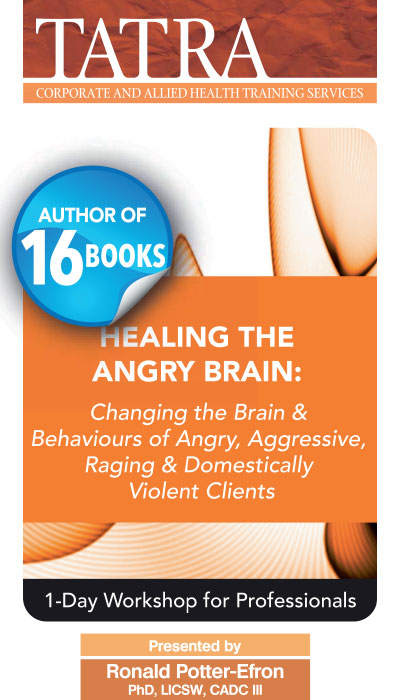
Healing the Angry Brain: Changing the Brain & Behaviours of Angry, Aggressive, Raging & Domestically Violent Clients
May 2015
Ronald Potter-Efron, PhD, LICSW, CADC III
International anger expert Dr. Ron Potter-Efron will have your clinical toolbox overflowing with proven anger strategies for long-term change of aggressive, raging and violent behaviours. In this brand new workshop, Dr. Potter – Efron will bring together neuroscience and a powerful range of anger treatment plans to change the brains and behaviours of your most challenging clients.

Medications for Mood and other Mental Health Issues: Understanding Medications, and How they are used to Treat Various Mental Health Conditions
September 2016
Sharon Freeman-Clevenger, MSN, PMHCNS-BC, CARN-AP
Given that more and more individuals are turning to the use of medications to treat problems, it is imperative that mental health practitioners understand the medications used, and why. In addition practitioners need to have a sense of competency regarding their use, and be able to communicate accurately with their clients on these medications. This workshop will give you a solid framework of understanding about psychiatric medication in a down to earth sensible way.

The Tip of the Iceberg: Understanding and Responding to Self-Harm
Various dates and locations. This workshop has also been provided by TATRA as an in-house event to organisations around Australia.
Hanna Nowicki, Postgrad. Soc. Work, LLB, BA Psych
This course will offer helpful guidelines to workers who wish to improve their capacity to respond usefully to clients who self-harm. The course is designed in such a way that all the information given to professionals is immediately translated into conveying the same information to the client. Numerous activities and exercises to be used as therapeutic tools are given.
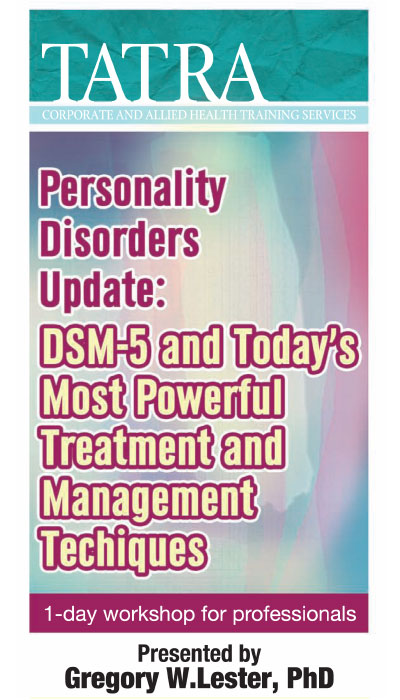
Personality Disorders Update: DSM 5 and Today’s Most Powerful Treatment and Management Techniques
September 2013
Gregory Lester, PhD
This workshop will focus on teaching the practical methods that have been found to work successfully with these clients, including methods to repair disordered personality, diminish unproductive behaviours, enhance productive behaviours, and generate appropriate and adaptable behaviours.

Working with Older Adults: Mental Health, Cognitive Impairment, and Addressing Behavioural Challenges
May-June 2016
Andrew L. Heck, PhD
This presentation is aimed at providing direct care workers, informal caregivers, and others invested in the community-based care of older adults (e.g., administrators, public policymakers) with knowledge about some of the most common and challenging mental health and dementia-related issues.
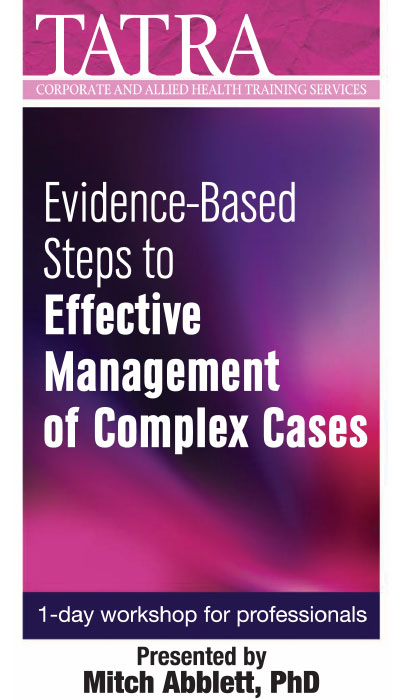
Evidence-Based Steps to Effective Management of Complex Cases
August 2013
Mitch Abblett, PhD
This high energy seminar will focus on discussing a simple and comprehensive system for assessing clinically complex client populations, such as clients with history of trauma, abuse/trauma perpetrators, personality disordered clients, substance abusers and behaviour disordered clients.

Resolution of Traumatic Stress: Evidence and Practice Based Strategies for Addressing Acute and Complex Trauma
June 2013
Eric Gentry, PhD
This one-day training presented by internationally-renowned trauma professional Dr. J. Eric Gentry provides state-of-the-art evidenced-based practices and principles to help you safely and effectively work with this challenging client population.

Compassion Fatigue and Burnout: Prevention and Resiliency for the Workforce
June 2013
Eric Gentry, PhD
n this workshop, you will learn powerful tools (the anti-bodies) that are critical for professional resiliency and integrate them into your practice immediately. Additionally, you will leave with techniques to teach and help your clients improve their lives.

The ABC of Mental Health
This workshop has been held on various dates and also as an in-house event for various organisations in South Australia and around the country.
Hanna Nowicki, Postgrad. Soc. Work, LLB, BA Psych
You will leave this workshop with an in-depth knowledge of mental health issues including early warning signs of mental illness and current treatments and pathways to referrals. You will be able to perform mental health assessments including Mental Status Examinations which will improve the effectiveness of your referrals and communication with mental health services. This workshop will also equip you with good understanding and translation of mental health jargon and assessment tools used by experienced mental health practitioners.

The Anger Management Jumpstart and Beyond: Powerful Mindfulness- based Techniques for Transforming Anger into Self-acceptance, Empathy and Forgiveness
June-July 2016
Pavel Somov, PhD
Anger is not easy to resolve or treat. For treatment to be effective, a multitude of tools, techniques and therapeutic models should be applied at different times. Not one or another treatment approach is better than the other, and there is no end to learning about new tools. If you have attended other courses on managing and treating anger in the past, then add this one to your portfolio. It is different!

The Mindfulness Combo: Innovative Mindfulness Techniques for Emotional Eating, Weight Loss, Smoking Cessation, Substance Misuse, Breaking Problematic Habits, Impulse Control, Anxiety and Depression
June 2016
Pavel Somov, PhD
Mindfulness—once an ancient practice honed in Buddhist monasteries—is now a mainstream, evidence-based, secular intervention employed by trained health and mental health professionals worldwide. Research continues to show that mindfulness is an effective treatment for anxiety, depression, stress, pain relief, and many other ailments other such as burnout. But, Mindfulness can also be effectively used to help clients with other serious issues like: emotional eating and weight gain, smoking, insomnia, impulsive behaviours, and problematic habit patterns.
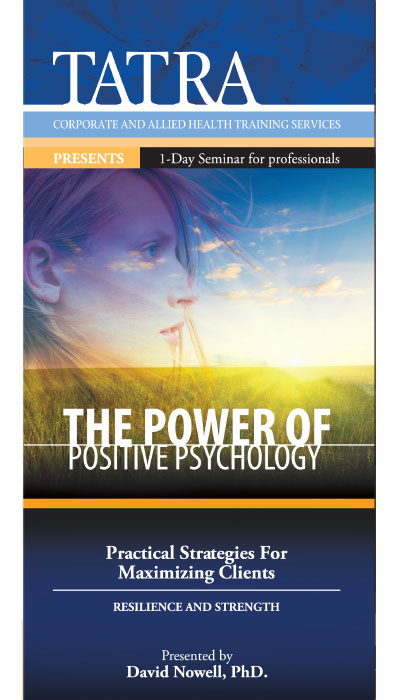
The Power of Positive Psychology: Practical Strategies for Maximizing Clients’ Resilience and Strength
May 2011
David Nowell, PhD
Learn dozens of positive psychology techniques that can be immediately integrated into your current skill set and style. Move beyond pathology and access client’s strengths and coping history.

Best Evidence-Based Techniques for Managing Procrastination, Willpower, Self-Regulation and Productivity
April-May 2016
David Nowell, PhD
This workshop is designed specifically for the skillful practitioner, manager, or teacher who still encounters clients who struggle with self-regulation of effort and motivation.

Practical Interventions for Adult and Child ADHD
April-May 2016
David Nowell, PhD
This workshop is designed for the practitioner who wants to go beyond ADHD basics and acquire practical skills for in-session application with ADD/ADHD clients as well as powerful strategies to recommend for parents of children with attentional disorders.
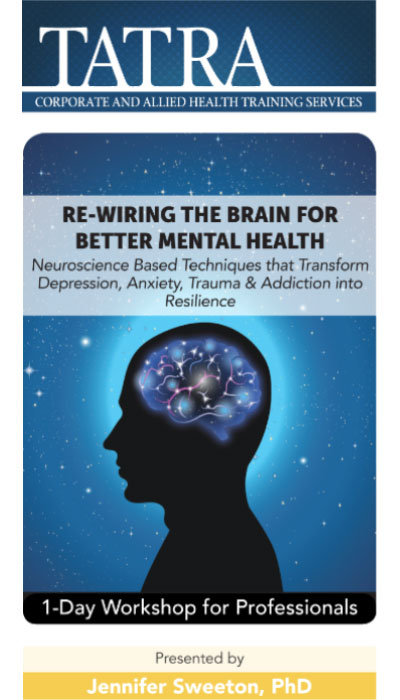
Re-Wiring the Brain for Better Mental Health: Neuroscience-Based Techniques that Transform Depression, Anxiety, Trauma, and Addiction into Resilience
March 2017
Jennifer Sweeton, PhD
This seminar, led by clinical expert Dr Jennifer Sweeton (Stanford University School of Medicine), shares the most up-to-date research discoveries and teaches highly effective techniques aimed at facilitating resilience and recovery from depression, addiction, anxiety that might be linked to trauma. Join Dr Sweeton for this seminar and discover how to:
- Integrate brain-based trauma intervention approaches into your practice
- Help clients build a more resilient brain
- Improve motivation and treatment compliance
- Monitor treatment progress
- Teach clients how to modulate overwhelming emotions using the power of neuroplasticity and brain-boosting practices
- Master 7 key evidence-informed, neuroscience-based strategies that promote posttraumatic growth
- Learn why the best evidence-based trauma therapies can fail, and how to improve their effectiveness by integrating the skills taught in this workshop
- Utilize new insights from positive neuroscience to help clients not only recover from, but thrive
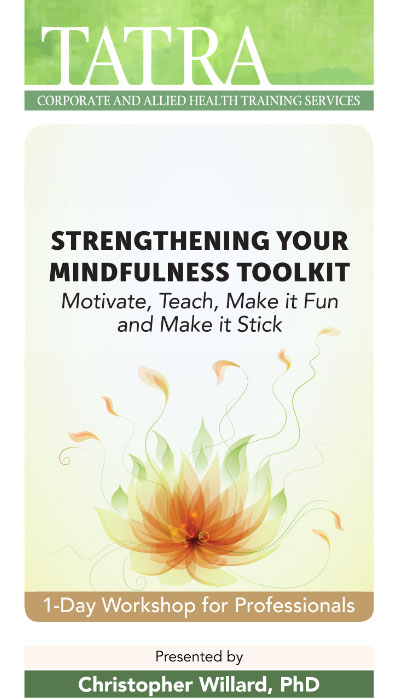
Strengthening Your Mindfulness Toolkit: Motivate, Teach, Make it Fun and Make it Stick
April-May 2017
Christopher Willard, PhD
Research continues to show that mindfulness is an effective treatment for anxiety, depression, stress, pain relief, and many other ailments. As practitioners, we recommend Mindfulness to our clients as evidence-based treatment, but do we really know how to help our clients to use Mindfulness as a regular practice? Or, do we just tell our clients to practice Mindfulness, we recommend it, and then leave it at that? How do we motivate clients when they find Mindfulness too hard to stick to? And, most importantly, how do we teach children to use Mindfulness? Do we know how to present Mindfulness to our clients as an interesting and a dynamic practice that helps to change their brains for the better?
This unique workshop will take your current understanding of Mindfulness to the next level. You will be able to broaden your understanding of mindfulness know-how techniques to assist clients, not only in achieving mood regulation or inner peace, but also in motivating them when they find the regular practice of Mindfulness too difficult to stick to in the long term.

Healing the Grieving Heart: Effective Strategies for Helping Clients Heal from Grief, Trauma Break-ups, and Other Losses While Creating Renewed Meaning in their Lives
May 2017
Courtney Armstrong, LPC
Healing from grief doesn’t have to be slow or painful. This workshop will show you how to help clients navigate the journey of grief more easily and view loss as a pathway to greater compassion, deeper relationships, and more meaningful living. You will discover why the face of grief and loss has changed over the last decade and acquire a host of contemporary strategies you can use to comfort grieving clients and help them move forward in positive, healthy ways after loss.

Working with Clients with Complex Issues: Integrated Techniques for Working with Emotional Dysregulation, Unresolved Trauma, Complex Resistance and Chronic Anger and Hate
June 2017
Daniel Short, PhD
The principles taught in this workshop are derived from the Dialectical Behavioural Therapy (DBT) for the regulation of emotions, Motivational interviewing (MI) for increased engagement in problem solving, Interpersonal therapy (IPT) for increased therapeutic alliance and Trauma-focused CBT for work with traumatized individuals.
Dr Short will also demonstrate a key imperative from the Ericksonian approach to psychotherapy : a “Use what works!” approach. Milton Erickson was known for his “genius-like” problem solving talents and he was often able to effectively help his clients in just one session. He became famous for his great problem-solving abilities and for equipping his clients with the long-lasting transformational skills that allowed them to face life challenges competently and without further assistance from him. What was Erickson doing that allowed him to have such wonderful results so fast? Wouldn’t it be great, if we all worked from the same perspective? This pragmatic approach has been researched and elaborated in the Integrative Model for Psychotherapy.
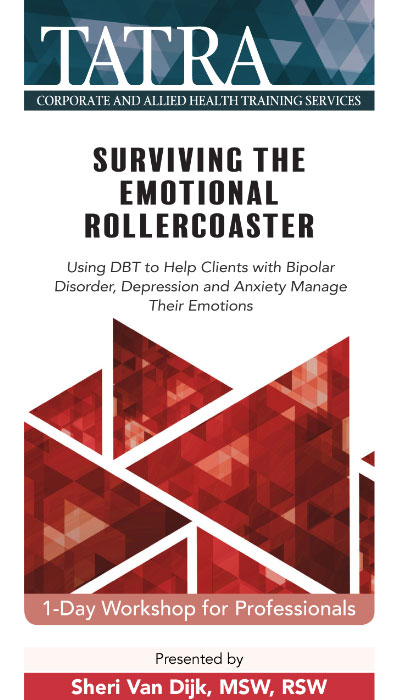
Surviving the Emotional Rollercoaster: Using DBT to Help Clients with Mood and Anxiety Disorders Manage Their Emotions
August 2017
Sheri Van Dijk, MSW, RSW
DBT is a treatment originally designed to treat clients with BPD, but is increasingly being used to help clients with general problems in regulating emotions. Whether related to a mental illness such as bipolar disorder, depression or anxiety; or just to difficulties managing emotions that lead to problems with anger, relationships, and low self-esteem, an inability to manage emotions can lead to chaos and misery.
In this one-day workshop, you’ll delve more deeply into the DBT skills – broadening your understanding of some of the most important skills to help clients manage emotions and your ability to teach these to clients. Experiential exercises and video clips from Sheri’s real-life work with clients will help clinicians to increase their confidence in bringing DBT skills and strategies into their practice.
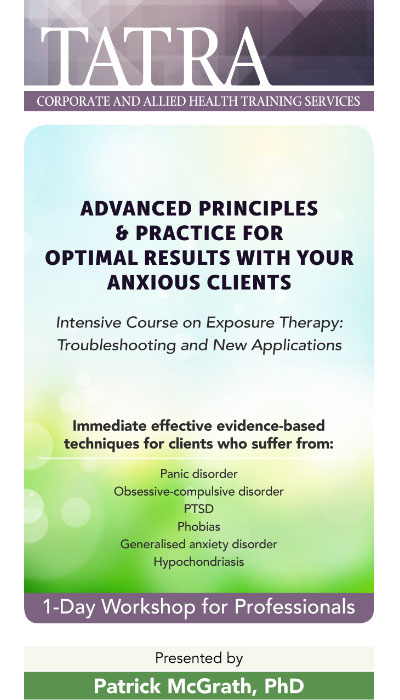
Advanced Principles and Practice for Optimal Results with Anxiety Disorders, Intensive Course on Exposure Therapy: Troubleshooting and New Applications
September 2017
Patrick McGrath, PhD
The Exposure and Response Prevention (ERP) approach is the most effective treatment available for anxiety disorders. The theory behind ERP is well supported, and few mental health treatments enjoy more scientific support. Unfortunately, ERP is not used by most practitioners, leading clients with anxiety disorders to suffer needlessly while less adequate treatments or only medical approaches are applied to their care. This workshop will go beyond the theoretical background for ERP and will focus on practice. With multiple case examples, role plays, and exercises, participants will get a firsthand experience of what it is like to do ERP with clients. All of the anxiety disorders, OCD, and PTSD will be reviewed and case studies will be explored showing the ins and outs of using Cognitive Behavioural Therapy (CBT) and ERP in an intensive format. Designed to be used in weekly sessions, the techniques that will be discussed will showcase how and why to use ERP to get best results with your clients.

Healing the Family Members of People with Narcissistic and Borderline Personality Traits
September 2017
Margalis Fjelstad, Ph.D., LMFT
Every person with Borderline or Narcissistic Personality Disorder dramatically affects many other people with their dysfunctional behaviours, including parents, siblings, one or more spouses, and children as well as friends, co-workers, neighbours, etc. These family members are more likely to come into therapy than are the borderline or narcissist person. They are also very likely to be on anti-depressant and anti-anxiety medications. It is essential to be able to effectively help these numerous clients who may be greatly distressed and their lives disrupted by borderline or narcissist behaviours.
Traditional family therapy techniques do not work effectively with these families because of the emphasis on communication, empathy and cooperation, which the borderline or narcissist is often unable to do and feels highly resistant to doing. Family members are frequently ignored and their concerns dismissed as therapists put their primary attention onto the mental illness of the borderline or narcissist client. This workshop will focus on helping these many overlooked, neglected and misunderstood family members to find understanding, improved mental health, and to learn more effective coping skills to deal with their unique situation.
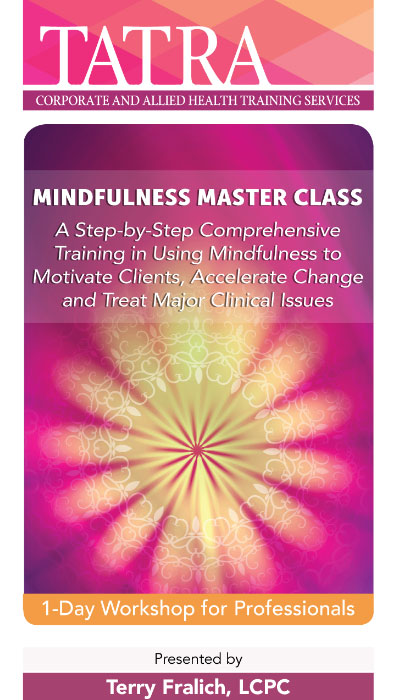
Mindfulness Master Class: A Step-by-Step Comprehensive Training in Using Mindfulness to Motivate Clients, Accelerate Change and Treat Major Clinical Issues
October 2017
Terry Fralich, LCPC
Advances in neuroscience have had a significant impact on the mental health profession in the last fifteen years. Helping your clients understand important concepts about the brain can dramatically increase your effectiveness. The presenter will explore important neuroscience concepts so that you will have the clarity and confidence to use “practical neuroscience” in your practice.
You will leave this training with a comprehensive mindfulness-based approach to treating diverse clients and issues, supported by effective hand-outs you can use right away to support transformative mindfulness practices by your clients. In addition, the training will enable you to more actively bring mindfulness into both your personal and professional lives, giving you strengthened confidence that mindfulness practice can truly lead to the more stable clarity, balance and happiness both you and your clients deserve.
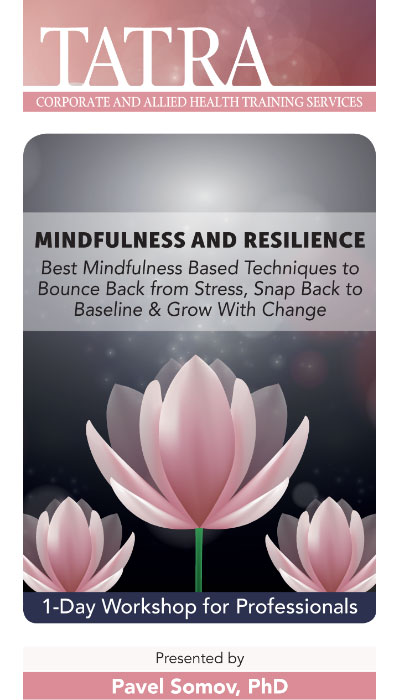
Mindfulness and Resilience: Best Mindfulness Based Techniques to Bounce Back From Stress, Snap Back To Baseline & Grow With Change
March 2018
Pavel Somov, PhD
Join Dr Pavel Somov, one of the most recognized Mindfulness experts, international speaker, and the Author of 7 mindfulness-based self-help books, at this highly experiential and practical workshop. Dr Somov will present a program consisting of 10 lessons for developing resilience for clients, clinicians and the general population.
He will present an innovative and eclectic synthesis of classic and original mindfulness-based techniques; cognitive, behavioural and metacognitive interventions; stress inoculation training; pattern interruption and choice awareness development; choice fatigue conditioning; somatic/bottom-up emotional self-regulation; somatic willpower mobilization tips; uncertainty tolerance perspectives; therapeutic, meaning-based strategies; philosophical and spiritual memes.

Mindful Eating: Mindfulness Skills to Control Cravings, Eat in Moderation and Optimize Health and Coping
March 2018
Pavel Somov, PhD
Join psychologist Pavel Somov, PhD., in this practical and original workshop to learn how you can help your clients take control over emotional eating as a way of coping. Pavel Somov is author of seven books on mindfulness, including Mindful Emotional Eating, Reinventing the Meal, and Eating the Moment.
He proposes that emotional eating is a legitimate form of self-care and he teaches clients and clinicians how to “leverage more coping per calorie.” He has given a “cultural permission” to eat emotionally — with mindfulness-based tools to do so in moderation and without self-judgment and self-loathing. Numerous original exercises and meditative techniques will guide a more conscious alliance with food during moments of emotional distress. This workshop will go far beyond “eating the raisin”. It will provide you with a toolbox of mindfulness based techniques you can teach your clients so that they are more in control of their eating habits, weight, health and well-being.
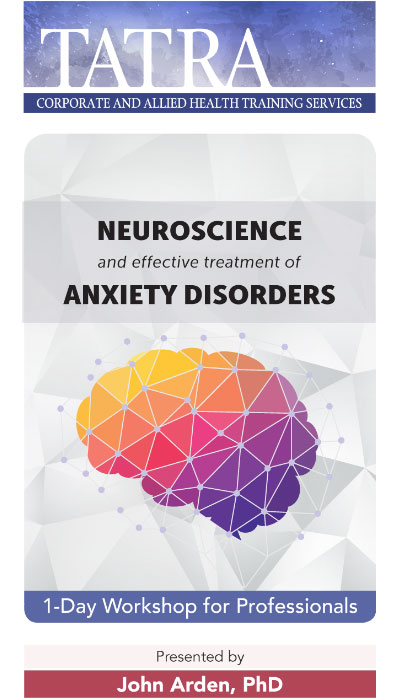
Neuroscience and Effective Treatment of Anxiety Disorders
May 2018
John Arden, PhD
In this training you will develop a new way of looking at the recovery process enabling you to move beyond the traditional theoretical school approach. You will learn how to use the Brain-Based Therapy approach to educate your clients, make the goals of treatment understandable and achievable, and how to move fast towards recovery.
Using a synthesized model of neuroscience, attachment theory and evidence-based treatment, you will learn how to more effectively help clients with anxiety disorders such as GAD, Panic Disorder, OCD, and PTSD.

Brain Therapy: Planting SEEDS for a Healthy Brain and Better Mental Health
May 2018
John Arden, PhD
This seminar offers down-to-earth and practical suggestions on how to apply new developments in neuroscience in order to achieve positive client outcomes effectively and fast. Recent advances in neuroscience have increased our knowledge of how and why people change and what they need to change in their lifestyles in order to maintain good health and prevent relapse. This training will examine the use of brain-based interventions that enhance outcomes for clients and facilitate the effectiveness of existing intervention modalities
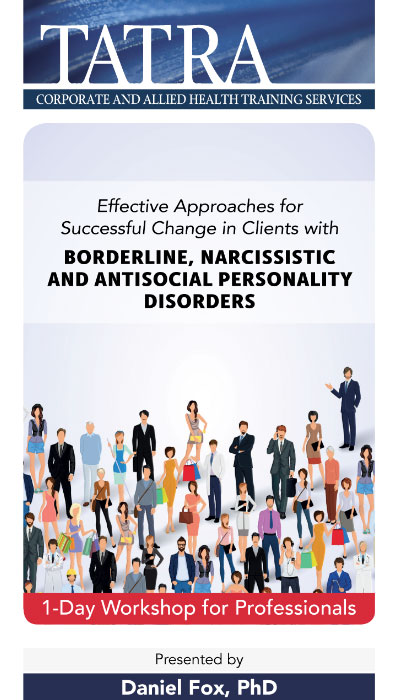
Effective Approaches for Successful Change in Clients with Borderline, Narcissistic and Antisocial Personality Disorders
June 2018
Daniel Fox, PhD
Working with individuals with Personality Disorders has long been identified as one of the most challenging areas of practice. This seminar will present cutting-edge information on Personality Disorders, along with the most current, effective, and powerful methods for treating and managing three challenging Personality Disorders: Borderline, Narcissistic and Antisocial. Despite having familiarity with some specific aspects or models of understanding or treating personality disorders, most professionals find personality disorders to be the most confusing, frustrating, and difficult of all mental health conditions. Fortunately, there have been recent advances in our understanding of personality disorders that offer professionals new, powerful, and highly effective methods for treating and managing these conditions in nearly any mental health, health care, or social service setting.

Stress-Proofing the Brain: Applying Neuroplasticity, Mindful Self-Compassion and Positive Psychology to Overcome Stress, Anxiety, and Trauma
July-August 2018
Melanie Greenberg, PhD
Slowing down and refocusing often sounds easier said than done. But if you can swing it, it is indeed possible to cultivate a more resilient, stress-proof brain. Join emotions researcher and Psychology Today blogger Melanie Greenberg, PhD, for a workshop on the neuroscience of stress and emotions devised for the general public and health professionals alike.
Through didactic presentations, hands-on experience, and one-on-one sharing, you will learn to use tools from mindfulness, neuroscience, and positive psychology to master and redirect your brain’s stress response by harnessing the power of neuroplasticity.

Brain to Brain Engagement: Neuroscience and Practice Based Techniques for the Best Client Outcomes
September 2018
Daniel Short, PhD
The ability to engage clients should go beyond good listening skills and validation techniques if we are to provide clients with the necessary ingredients for transforming their lives. Research has consistently indicated that a successful early engagement and positive client-practitioner alliance is the strongest and most reliable predictor of positive client outcomes, both short-term and long-term. This workshop will provide you with a toolbox full of techniques useful in creating a high quality interpersonal environment to suit the unique needs of each individual client. Dr Short will highlight how, in the age dominated by artificial electronic connection, the ability to establish meaningful face-to-face relationships with our clients is at the core of health and healing.
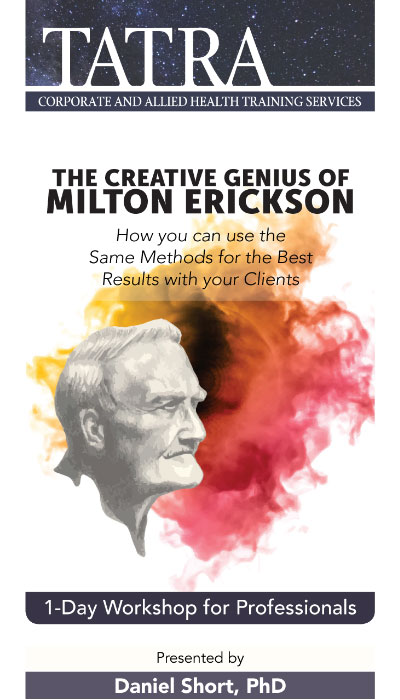
The Creative Genius of Milton Erickson: How You can Use the Same Methods for the Best Results with Your Clients
September 2018
Daniel Short, PhD
It is often said of Erickson that he was a creative genius. Naturally, there is some concern from others that they will not be able to replicate his dynamic approach to therapy. However, as Dr Short can personally testify to, every practitioner can employ the attitudes and habits of thought that make the Ericksonian approach so effective. What makes this approach to hypnosis and therapy so rewarding is not only the surprising accomplishments produced by the client but also the rich rewards of creativity and new learning that the therapist gets to enjoy on a session by session basis.
Attend this fascinating training session and let Dr Short take you on a journey from the history of Milton H Erickson’s work through to how to do Ericksonian therapy in your daily practice and how to achieve wonderfully surprising results with your clients.

Traumatic Grief and Complicated Loss, New Breakthroughs and Reliable Tools to Help Clients after Death, Divorce and other Losses: Best Practice to Restore Your Clients Lives after Loss
October 2018
David Kessler
This seminar is a rare opportunity to spend the day with David Kessler, a best-selling author and internationally known grief and healing expert who has co-authored books and worked with the groundbreaking Elisabeth Kübler-Ross and the legendary Louise Hay. David returns to Australia with his remarkable, high energy workshop that provides a new look at the subject of grief and loss.
